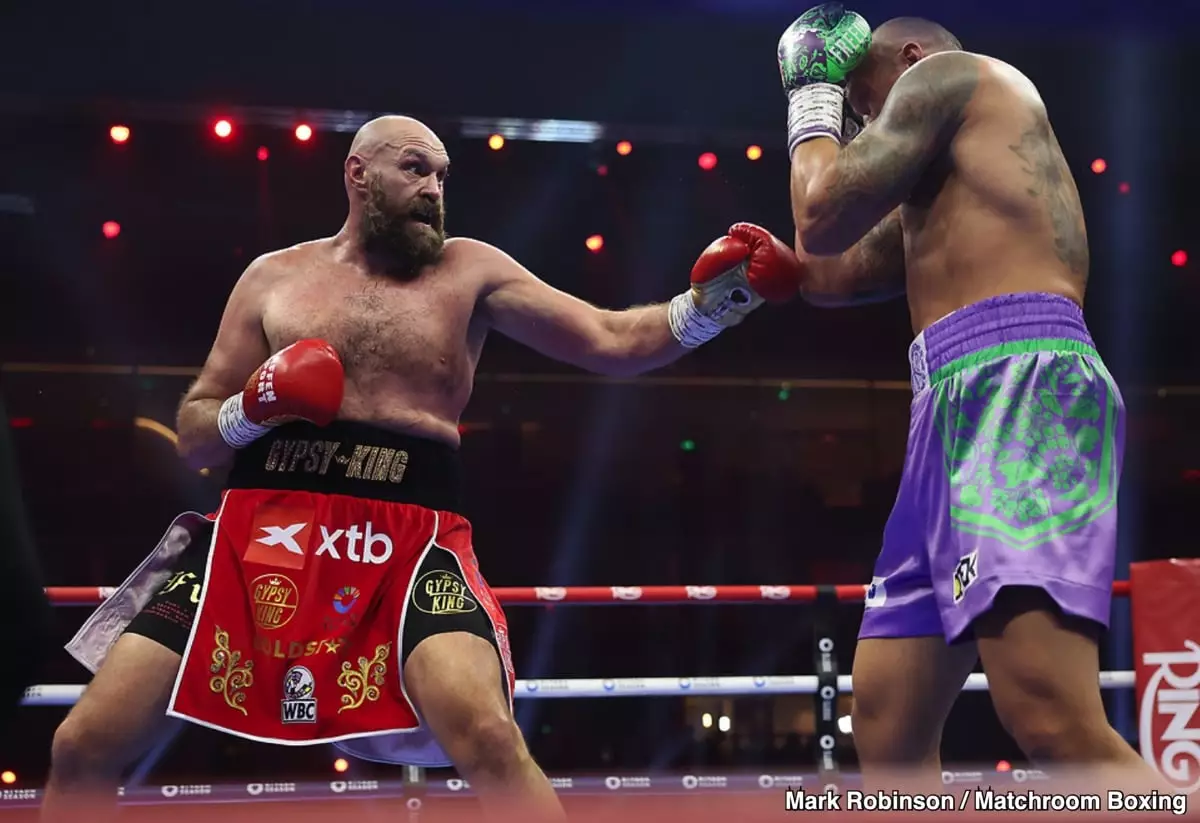In the wake of Tyson Fury’s recent bout against Oleksandr Usyk, the world of boxing is abuzz with speculation regarding the Gypsy King’s future. Following a disappointing defeat, where he suffered a unanimous decision loss, Fury’s promoter, Frank Warren, has expressed his unwavering support for whatever decision Fury makes, including the possibility of retirement. However, insiders suspect that the allure of high-profile fights, particularly a clash with Anthony Joshua, will keep Fury in the ring.
Fury’s performance against Usyk left much to be desired. Many pundits believe that based on his lackluster display, a fight against Joshua could yield unfavorable results. The anticipation for a Fury vs. Joshua fight remains high among British fans, many of whom would gladly invest in pay-per-view (PPV) access to witness the showdown. However, there is a growing concern that without a strong undercard or a reduced ticket price, the event may not attract an international audience, particularly considering the recent lack of impressive bouts on either fighter’s records.
Warren’s Perspective: A Balanced View
Frank Warren’s insight into the recent match highlights a complex situation. Despite the judges’ majority decision against Fury, Warren believes his fighter deserved a better outcome. However, a closer analysis reveals that most spectators felt Fury struggled to keep pace with Usyk, often being outworked throughout the fight. With a professional record of 34 wins, 2 losses, and 1 draw, Fury’s recent performances raise questions about his ability to compete with elite fighters moving forward.
In an interview, Warren stated, “If Tyson wants to fight, he’ll fight. If he doesn’t, he won.” This sentiment underscores the emphasis on mental motivation in boxing. It appears that both Fury and Joshua, who have had illustrious careers, possibly wouldn’t feel the pressure to continue if they don’t feel the desire to compete at the highest levels anymore. With safety and legacy being paramount, the stakes of future bouts can be as much about personal satisfaction as about title reigns.
Fury and Joshua do not necessarily require further accolades or victories to solidify their legacies; they have both already made significant contributions to boxing. Warren articulates that “They’ve been phenomenal fighters,” indicating a recognition that their past achievements require no further embellishment. Financially, both fighters have secured their futures, meaning any decision to enter the ring again is less about survival and more about passion for the sport.
However, this financial security should not overshadow the instinctive drive many boxers feel toward competition. Fury has notably retired in the past, only to make a comeback soon after; his attachment to the sport is palpable. Warren’s thoughts on this echoed a sentiment many hold dear: a true fighter will always fight. The future landscape of heavyweight boxing remains uncertain, but the dance between retirement and the continued pursuit of glory will undeniably shape the next chapter for both Fury and Joshua.
As Tyson Fury contemplates his next move, his path carries significant implications for heavyweight boxing. Whether he steps back into the ring for a dramatic showdown against Anthony Joshua or chooses to walk away once and for all, the boxing community awaits with bated breath. The decisions made in the coming months will resonate with fans and fighters alike, ultimately shaping the narrative of an already storied career. For Fury, time will tell if this is the end or merely a new beginning.


Leave a Reply